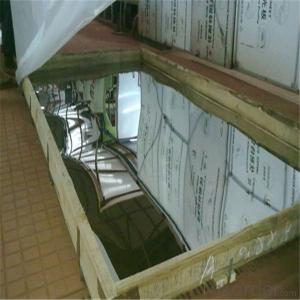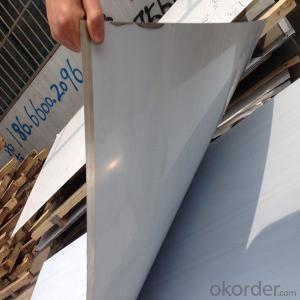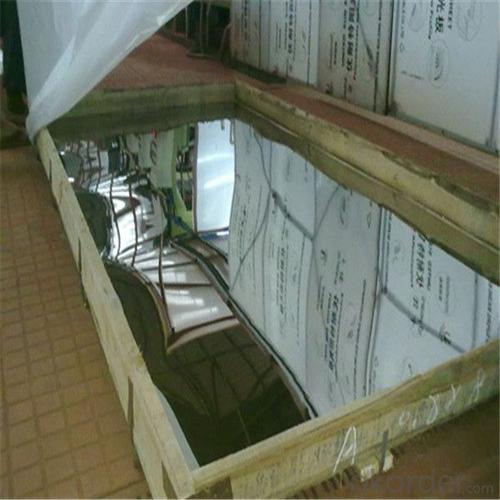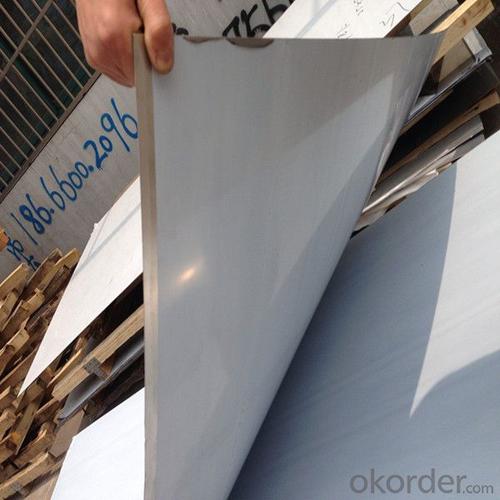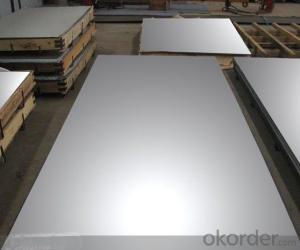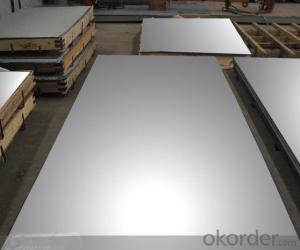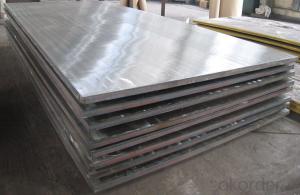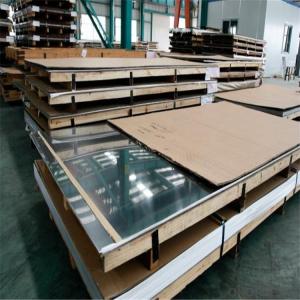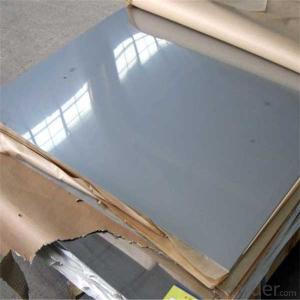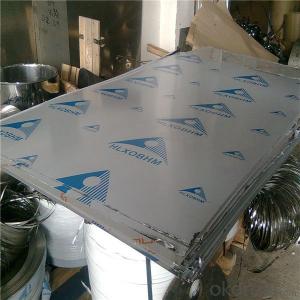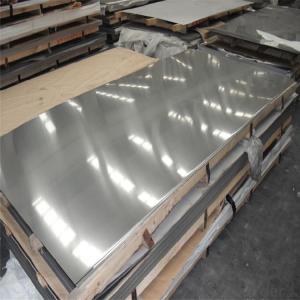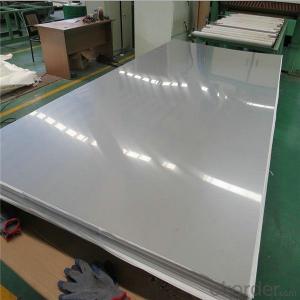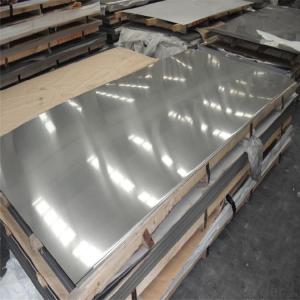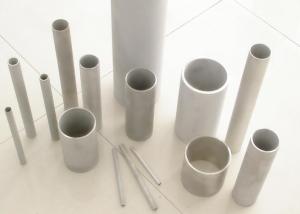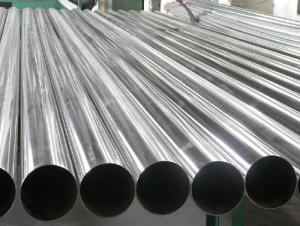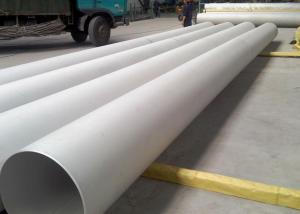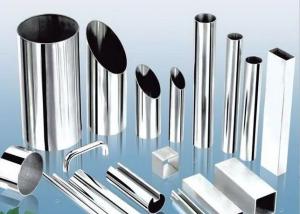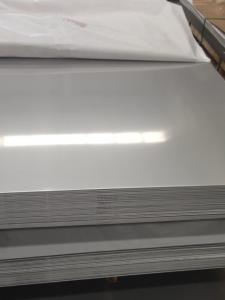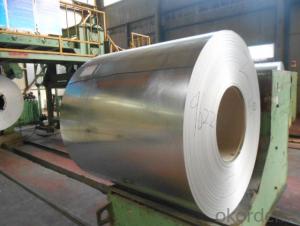Stainless Steel Coils and Sheets 201 304 316
- Loading Port:
- Shanghai
- Payment Terms:
- TT OR LC
- Min Order Qty:
- 1 m.t.
- Supply Capability:
- 3000 m.t./month
OKorder Service Pledge
OKorder Financial Service
You Might Also Like
Specification
Applications of Stainless Steel Coils and Sheets:
1. Automotive:Automotive trim and molding/Difficult-to-form exhaust-system components, tubular manifolds, mufflers/Exhaust manifold and other exhaust-system components, catalytic converter shells, clamps
2. Construction: Gutters and downspouts, roofing, siding
3. Kitchenware: Cooking utensils, dishwashers, ovens, range hoods, refrigerators, skewers
4. Chemical processing: Oil refinery equipment, oil burner and heater parts
5. Appliances: Hot water tanks, residential furnaces
6. Power generation: Heat Exchanger tubing
7. Farming: Dry fertilizer spreaders/Farm animal pens
Technical notes:
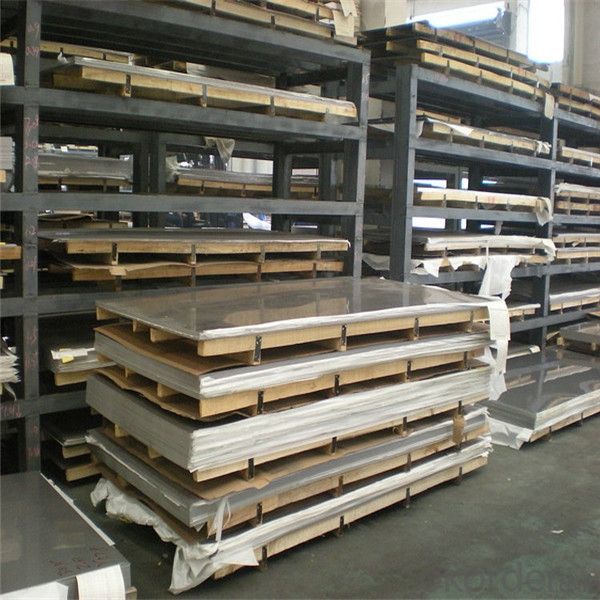
- Q: What is the flatness tolerance for stainless steel sheets?
- The flatness tolerance for stainless steel sheets typically falls within the range of 0.25-0.50% of the sheet thickness.
- Q: 304 why is stainless steel magnetic?
- 304 stainless steel after cold processing, the structure of the structure will also change to martensite, and the greater the deformation degree of cold work, the more martensite transformation, the greater the magnetism. Like a lot of stainless steel wire, made straight, no obvious induction, but it is bent into a rectangular or circular, and produce some magnetic for cold bending deformation is large, especially the angle of magnetic is more obvious.In order to eliminate the magnetism of the 304 stainless steel, the austenite structure can be recovered by high temperature treatment so as to eliminate magnetism.Special remind is, 304 magnetic stainless steel because it causes, and other materials such as stainless steel, carbon steel, magnetic 430 is not the same level, that is to say the magnetic stainless steel 304 is always weakly magnetic.
- Q: Can stainless steel sheets be used for brewery piping?
- Certainly! Brewery piping can indeed utilize stainless steel sheets. Due to its corrosion resistance, durability, and hygienic qualities, stainless steel remains a favored material selection for brewery piping. It is capable of enduring the rigorous demands of the brewing process, including exposure to intense temperatures and harsh chemicals, thereby guaranteeing the integrity and cleanliness of the piping system. Moreover, stainless steel is effortlessly cleaned and maintained, rendering it exceptionally well-suited for breweries where cleanliness and sanitation are of utmost importance. In conclusion, stainless steel sheets are an unwavering and appropriate choice for brewery piping.
- Q: How do I prevent finger marks on stainless steel sheets?
- To prevent finger marks on stainless steel sheets, you can try a few simple steps. Firstly, make sure to clean the sheets regularly using a mild detergent or stainless steel cleaner to remove any existing fingerprints. Next, consider applying a protective coating or film specifically designed for stainless steel surfaces, which can provide a barrier against smudges and fingerprints. Additionally, try to handle the sheets with clean and dry hands to minimize the transfer of oils and dirt. Finally, consider using microfiber or lint-free cloths for cleaning instead of rough materials that can leave scratches or streaks.
- Q: What about black titanium stainless steel?
- It is not easy to strip the black of the board for the purpose of etching the logo. There is hardly a chemical that can pass black. The so-called qualified fade, that is, after fading black, to ensure that the bottom of the mirror stainless steel. Without this standard, a strong acid or ferric chloride would corrode, but the surface black would have been roughened and not shiny, which would have been unsuccessful and less useful.
- Q: What are the benefits of using embossed stainless steel sheets?
- There are several benefits of using embossed stainless steel sheets. Firstly, embossed stainless steel sheets offer enhanced aesthetic appeal. The embossed patterns on the surface of the stainless steel sheet add a unique texture and visual interest to any space. This can help to create a more visually appealing and modern look in both residential and commercial settings. Additionally, embossed stainless steel sheets provide increased durability and strength. Stainless steel is already known for its excellent resistance to corrosion, staining, and wear. The embossing process further enhances the strength and durability of the sheets, making them suitable for high traffic areas or areas where there is a risk of damage or impact. Another benefit of using embossed stainless steel sheets is their versatility. These sheets can be used in a wide range of applications, including wall cladding, elevator panels, kitchen backsplashes, furniture, and architectural features. They can be easily cut and shaped to fit different design requirements, making them a versatile choice for various projects. Furthermore, embossed stainless steel sheets are easy to clean and maintain. The smooth surface of the embossed patterns makes it easier to wipe away dirt, grime, and fingerprints, ensuring a clean and hygienic surface. This is especially beneficial in areas where cleanliness is a priority, such as kitchens or healthcare facilities. Lastly, embossed stainless steel sheets are environmentally friendly. Stainless steel is a highly sustainable material as it is 100% recyclable, and the embossing process does not generate any waste or harmful byproducts. This makes embossed stainless steel sheets an eco-friendly choice for those looking to reduce their carbon footprint and contribute to a greener environment. In conclusion, the benefits of using embossed stainless steel sheets include enhanced aesthetic appeal, increased durability and strength, versatility in applications, easy maintenance, and eco-friendliness. These sheets are a great choice for those seeking a durable, stylish, and sustainable material for their projects.
- Q: How do you determine the best thickness of stainless steel sheet for a specific application?
- Several factors need to be taken into account when determining the optimal thickness of a stainless steel sheet for a specific application. First and foremost, the intended use of the stainless steel sheet is of utmost importance. Different applications necessitate varying levels of strength, durability, and resistance to corrosion. For instance, if the sheet will be employed in a high-stress environment or exposed to harsh chemicals, it would be prudent to opt for a thicker gauge stainless steel sheet in order to ensure sufficient strength and corrosion resistance. In addition, the size and dimensions of the application must be considered. Larger structures or components may necessitate thicker stainless steel sheets to maintain structural integrity and prevent deformation under load. Conversely, smaller or more delicate applications may benefit from thinner sheets to reduce weight and enhance flexibility. Furthermore, it is crucial to take into account the expected lifespan and maintenance requirements. Generally, thicker stainless steel sheets offer greater longevity and can withstand more wear and tear. However, if the application calls for frequent cleaning or maintenance, a thinner sheet may be more practical. Budgetary constraints should also be factored in. Thicker stainless steel sheets tend to be more costly due to the increased material expense and manufacturing complexity. Striking a balance between desired performance and available resources is crucial in determining the most cost-effective thickness. Lastly, seeking insights from industry standards, guidelines, and experts can be invaluable. Different industries have specific requirements for stainless steel sheet thickness based on their experiences and safety standards. Engaging with professionals can help ensure that the chosen thickness meets the necessary specifications and regulations. In conclusion, the determination of the optimal thickness of stainless steel sheet for a specific application involves considering the intended use, size, expected lifespan, maintenance requirements, budget, and seeking expert guidance. By carefully evaluating these factors, one can make an informed decision and select the most suitable thickness for their specific needs.
- Q: Can stainless steel sheets be used for architectural columns?
- Yes, stainless steel sheets can be used for architectural columns. Stainless steel is a versatile and durable material that can withstand various weather conditions and provide a modern and sleek aesthetic to architectural designs. It is commonly used in architectural applications, including columns, due to its corrosion resistance, strength, and aesthetic appeal.
- Q: Can stainless steel sheets be used for food storage containers?
- Yes, stainless steel sheets can be used for food storage containers. Stainless steel is a popular choice for food storage containers due to its durability, non-reactive nature, and resistance to corrosion. It does not impart any taste or odor to the stored food, making it safe for long-term storage. Stainless steel is also easy to clean and maintain, making it a hygienic option for food storage. Additionally, stainless steel containers are often preferred for their eco-friendly properties, as they are reusable and can help reduce the use of single-use plastic containers. Overall, stainless steel sheets are a suitable and reliable choice for food storage containers.
- Q: How do you prevent rusting on stainless steel sheets?
- To prevent rusting on stainless steel sheets, you can implement a few preventive measures such as keeping the sheets clean and dry, avoiding exposure to corrosive substances, applying a protective coating or passivation treatment, and ensuring proper ventilation to minimize moisture buildup.
Send your message to us
Stainless Steel Coils and Sheets 201 304 316
- Loading Port:
- Shanghai
- Payment Terms:
- TT OR LC
- Min Order Qty:
- 1 m.t.
- Supply Capability:
- 3000 m.t./month
OKorder Service Pledge
OKorder Financial Service
Similar products
Hot products
Hot Searches
Related keywords
